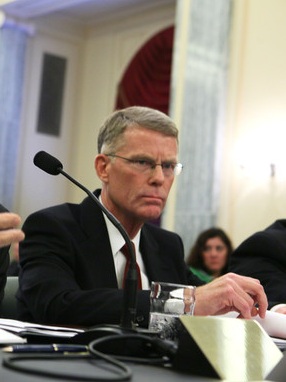In June 2009, a fatal crash on the D.C. Metro prompted federal lawmakers to consider adding a new layer of transit safety oversight. Senator Barbara Mikulski, a Maryland Democrat, introduced the National Metro Safety Act of 2009 to establish national safety standards for transit systems. It was never enacted, but it certainly raised the issue's profile, and Transportation Secretary Ray LaHood has not let it fall by the wayside.

This year, the Senate Banking Committee inserted a measure into the Senate's two-year transportation bill that instructed states to "submit proposals for state safety oversight programs for rail fixed guideway public transportation systems," which was touted as one of the bill's selling points at the recent legislative conference of the American Public Transportation Association. The House bill also contained some provisions related to transit safety.
Some local transit advocates have warned against new federal safety requirements, arguing that they will impose excessive burdens on transit agencies, making it more difficult to provide a transportation service that already boasts a remarkable safety record.
Any new transportation bill is on hold for the moment, but transit safety is still on the feds' agenda. Last Thursday, USDOT Inspector General Calvin Scovel defended expanded federal oversight at a hearing of the House Appropriations Subcommittee on Transportation, Housing and Urban Development.
Subcommittee Chair Tom Latham (R-IA) asked Scovel whether the Federal Transit Administration had the wherewithal to establish a new safety program. (Latham's subcommittee questioned FTA Administrator Peter Rogoff on the same topic last week.)
Scovel explained that his office had already issued recommendations to FTA -- currently little more than a grant-maker -- in January about how to go about setting up such a program. One of the program's primary tasks will be to record transit safety hazards, including what Scovel called "near miss/close call elements," similar to a safety metric already used by the Federal Aviation Administration. However, the FTA lacks the authority to follow through on all of DOT's internal recommendations, he said.
Latham seemed skeptical that additional authority was warranted. Citing a lack of interstate commerce to be regulated, Latham asked, "Why the reason for a federal oversight alternative?"
"There aren't many agencies that cross state lines," Scovel admitted, "but there is a clear federal role" in ensuring transit safety standards. He added that deficiencies at local agencies, like the ones that emerged in the aftermath of the 2009 WMATA crash, underscored the need for closer federal oversight.
You can read the full testimony from Scovel and other witnesses here.





